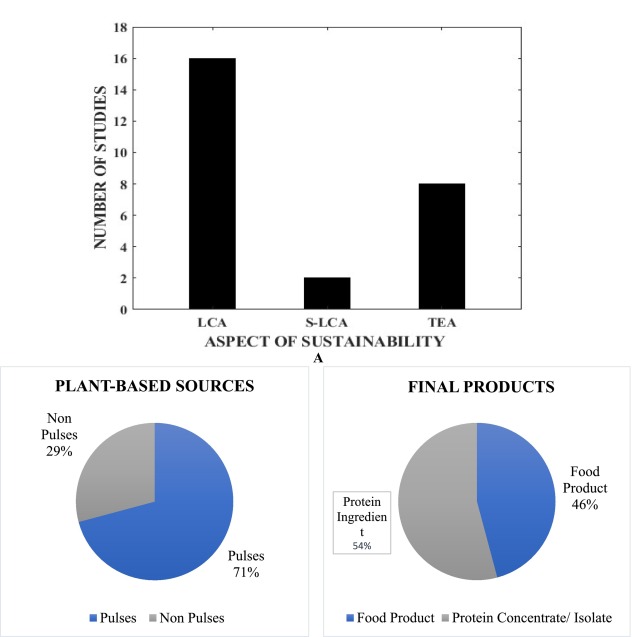Congratulations to Mr. Derrick Allotey on his new paper on sustainability assessment of the pea protein extraction industry

March 23, 2023
As part of the SASE contribution on the Sustainable Protein Program with the National Research Council, Canada,
a new article with lead author, Derrick Allotey has published an article sharing insights on the current trends in Plant protein extraction.
Highlights of the entire paper are presented in the abstract below
Background
The gradual popularity and adoption of plant-based proteins as alternative sources have provided
the need to ascertain their sustainability in production, processing, manufacturing, and consumption.
In response to this, researchers in the field have used Techno-economic Assessment (TEA), Life Cycle Costing (LCC),
Life Cycle Assessment (LCA), and Social Life Cycle Assessment (S-LCA) tools and metrics to analyze the sustainability of
plant-based protein food ingredients and product formulations.
Gaol/objective
This critical review is the first of its kind that pools
together all eligible TEA, LCC, LCA, and S-LCA studies on plant-based proteins, to assess the methodologies used and further
discuss the impacts reported to understand the general outlook of sustainability in this growing field. Studies were sourced
from online scientific databases and went through screening with specified exclusion criteria, which led to 28 eligible
studies used for the review.
Key findings
The studies were grouped under the economic, environmental and social dimensions and were reviewed under their
methodological aspects and findings reported. From the review, LCC, TEA and S-LCA have received very minimal
attention compared to studies on LCA. Moreover, no study considers the complete sustainability of plant-based
protein production under all three dimensions: economic, environmental, and social. Regarding the methodological
aspects, all studies follow the standards and guidelines stipulated. This review highlights achievements and challenges
identified in terms of missing databases, post-analysis, and stakeholder perspectives.
Recommendations
More evidence is still required to show that plant-based proteins have higher sustainability performance than
traditional animal-based proteins. These include, but are not limited to, developing more databases and performing
more complete studies, which include scenario, uncertainty and sensitivity analyses.
Finally, we propose salient pathways for a more holistic sustainability assessment of
plant-based protein production.
